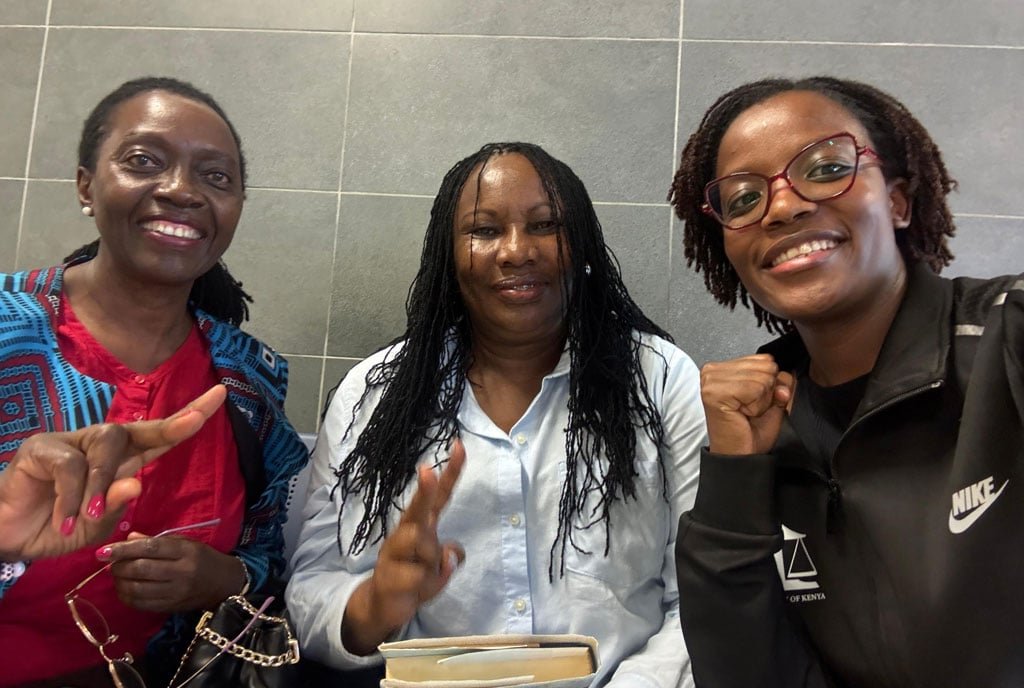NAIROBI, KENYA — Martha Karua, leader of the People’s Liberation Party (PLP) and a veteran of Kenya’s pro-democracy movement, has increasingly taken her advocacy beyond national borders, emerging as a prominent regional voice on governance and human rights. Her outspoken criticism of authoritarian practices across East Africa—particularly the suppression of political opposition and erosion of civil liberties—has drawn both praise and controversy.
Her recent deportation from Tanzania, following earlier interventions in Uganda, has propelled her onto the international stage. The incident underscores the mounting tensions within a region grappling with creeping authoritarianism, and exposes a worrying lack of accountability from East African leadership in confronting these abuses.
For those unfamiliar with her, Ms. Martha Karua is no stranger to the fight for justice. She served as Kenya’s Minister of Justice from 2005 to 2009 and was a member of the National Assembly from 1993 to 2013. Ms. Karua also ran for president in 2013 and later contested as Raila Odinga’s deputy presidential candidate in 2022. A stalwart of Kenya’s pro-democracy movement, she has built a reputation for her unwavering commitment to the rule of law.
Now, Ms. Karua is taking her battle beyond Kenya’s borders, claiming that a number of East African leaders have “gone rogue,” systematically undermining democratic institutions and silencing dissenting voices.
Her recent travels have not been mere acts of solidarity. They represent a calculated effort to bring regional complaints of human rights violations to the fore.
In Uganda, Ms. Martha Karua raised concerns about alleged human rights abuses during politically charged periods, particularly targeting the opposition. She publicly condemned what she described as the arbitrary detention, intimidation, and torture of political figures—most notably Dr. Kizza Besigye, a veteran opposition leader and former presidential candidate, who is currently incarcerated on “trumped-up charges of treason.”
Ms. Karua’s outspoken stance placed her at odds with Ugandan authorities, who accused her of interfering in the country’s internal affairs. Her efforts to support democratic processes and attend court proceedings involving opposition leaders have been viewed by some East African regimes as provocative, further underscoring the growing tensions between regional governments and advocates of political accountability.
Detained and deported in Tanzania
In Tanzania, Ms. Karua’s attempt to observe the trial of Tundu Lissu—an outspoken opposition leader also facing treason charges—was abruptly curtailed. Upon arrival at Julius Nyerere International Airport in Dar es Salaam, she, along with human rights lawyer Gloria Kimani and journalist Lynn Ngugi, was detained by immigration authorities and later deported without formal explanation.
The group had been invited by the East Africa Law Society to attend Lissu’s court hearing, a case that has drawn regional and international attention.
The Tanzanian government’s decision has been widely condemned by human rights organizations and legal advocacy groups, who interpret the move as a deliberate attempt to block external oversight and suppress transparency in politically sensitive judicial proceedings.
Critics argue the incident reflects a broader regional trend of shrinking civic space and intolerance toward scrutiny of state power.
Ms. Karua’s advocacy comes at a time of growing alarm over the deteriorating human rights climate across the East African region. Civil society groups and international observers have documented a rise in politically motivated abductions, arbitrary detentions, torture, and restrictions on freedom of movement.
These concerns are especially pronounced in countries where opposition leaders, journalists, and activists face systematic intimidation.
Critics argue that a worrying pattern of authoritarian consolidation is taking root, with governments increasingly deploying state security apparatuses to silence dissent, stifle democratic engagement, and entrench their hold on power under the guise of national security.
The East African Community’s troubling silence
The silence of East African states on these pressing human rights concerns has been both conspicuous and troubling. While the East African Community (EAC) Treaty espouses values of democracy, good governance, and the protection of human rights, the bloc’s response to clear violations within member states has been minimal at best. This inertia is exacerbated by the absence of robust enforcement mechanisms, which effectively allows governments to flout regional commitments without consequence.
Such inaction not only weakens the EAC’s credibility on the international stage but also erodes public confidence in its role as a guardian of democratic values. The implications are far-reaching: the evident reluctance of regional leaders to hold one another accountable suggests a tacit tolerance of authoritarian practices.
It also calls into question whether the EAC can genuinely serve as a platform for integration and mutual accountability, or whether it risks becoming a symbolic institution, unable—or unwilling—to confront the very challenges it was created to address.
Ms. Karua’s recent actions are widely interpreted as a bold attempt to step into the leadership vacuum left by the East African Community’s inertia. In the absence of institutional accountability, she has positioned herself as a de facto regional ombudsman—a tenacious advocate for justice and the rule of law. Her vocal stance challenges the sanitized narratives of stability and development often projected by East African governments.
Also Read: Kenyan MP Babu Owino criticizes Tanzania over Martha Karua, rights activists’ deportation
Yet her activism also underscores the stark realities faced by human rights defenders across the region. Ms. Karua operates in an increasingly repressive environment, where dissent is met with hostility and democratic space is steadily shrinking. Governments are deploying state apparatus not to protect freedoms, but to suppress opposition voices and insulate themselves from scrutiny.
The unfolding situation in East Africa now serves as a litmus test for the region’s commitment to the democratic ideals it professes. International observers are taking note, wary that hard-won democratic gains are being eroded under the guise of national sovereignty and stability.
Despite the risks, Ms. Karua remains undeterred. Her unwavering resolve to confront injustice has elevated her into a potent symbol of resistance. Whether her efforts will catalyze meaningful reform remains uncertain.
What is undeniable, however, is that her voice has become a rallying point for those demanding accountability in a region where democracy stands on increasingly fragile ground.

